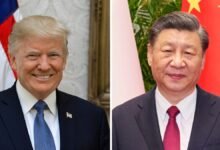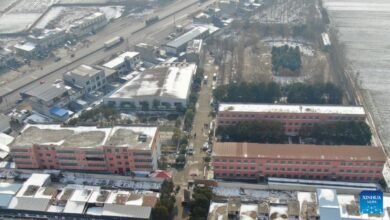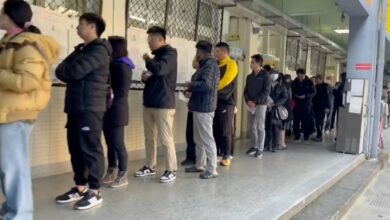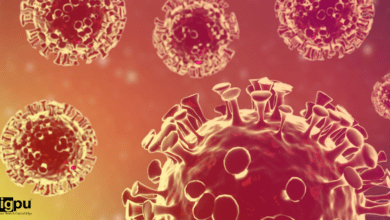Lai Ching-Te’s Triumph: Defying China’s Warnings, Taiwan Elects a Maverick President
In a gesture of bold defiance, Taiwanese people disregarded China's warnings by electing Lai Ching-Te, a self-declared 'worker for Taiwan's independence,' as their new President.
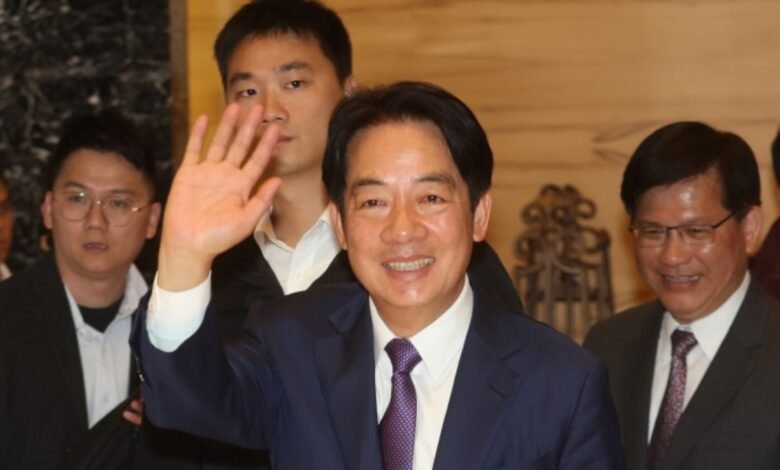
On January 13, Taiwan’s ruling Democratic Progressive Party won a third term in the country’s presidential elections — felicitating the incumbent Vice President Lai Ching-Te as the new President of Taiwan. The Doctor-turned-politician Lai Ching-Te, aka ‘Doctor William Lai,’ secured enough mandate to get promoted to the President’s chair after the outgoing leader, Tsai Ing-Wen, stepped down following her two terms in office.
Lai’s victory has become a contentious issue for the People’s Republic of China (PRC) and its President Xi Jinping, who consider him (Lai) a “troublemaker through and through” and a “great threat to China-Taiwan relations.” Such is the Xi administration’s abhorrence towards Lai and the DPP that the Chinese explicitly warned the Taiwanese voters against electing Lai Ching-Te to the President’s office. However, the Taiwanese voters couldn’t care less while exercising their democratic right and electing Lai in a gesture of bold defiance.
The Eighth Presidential Elections in Taiwan:
Since 1996, the Taiwanese people elect their President every four years. The Democratic Progressive Party (DPP) and the Kuomintang (KMT) have emerged as the two biggest parties in the self-governed island’s politics. The DPP has won three consecutive terms in office by securing the mandate of 56.1%(in 2016), 57.1% (in 2020), and 40% (in 2024) voters, respectively.
Out of a population of 23 million people, 17 million were eligible voters — out of which 14 million registered their mandate, a 71% voter turnout. The DPP-backed candidate (President-elect), Lai Ching-Te, secured a 40% mandate, defeating Hou Yu-Ih from (KMT) and Ko Wen-Je from the Taiwan People’s Party (TPP).
While the DPP endorses an unwavering anti-China stand and upholds Taiwan’s de facto sovereign status at any cost, the KMT prioritises dialogue and de-escalation with China. Hence, the DPP’s third victory in a row over the KMT pontificates the growing popularity of a distinctive Taiwanese identity as opposed to a Chinese one.
How a coal miner’s son became the President of his country:
Lai Chiang-Te’s (64) story, rife with vicissitudes, is a testament to his hard work and perseverance. Lai lost his father, who was a worker in a coal mine in northern Taiwan, to a coal disaster accident when he was only two. Raised by his mother, Lai completed his academic life with flying colours and studied medicine at prestigious Taiwanese universities. He completed his master’s in ‘Public Health’ from Harvard University and started practising as a physician in Taiwan.
However, during the forty-year-long regressive martial law regime in Taiwan, Lai gravitated towards politics and dedicated his life to political reforms. For over ten years, Lai served as a legislator before taking oath as the mayor of Tainan City.
Between 2017 and 2019, Lai served as Taiwan’s Premier and principal advisor to the President. In 2019, he swore himself in as the vice president of Taiwan and continues to hold the office today as the President-elect.
Why Lai’s victory is China’s nightmare?
China considers Taiwan an integral part of its civilisation and maintains that the integration of Taiwan with mainland China is only a matter of time. China even claims that any move towards Taiwan’s independence would be considered a direct attack on China’s sovereignty and invite war. However, China’s imperious stand on Taiwan was gravely disregarded when Lai introduced himself as “a pragmatic worker for Taiwan’s independence” in 2017.
Such was China’s distaste towards him that the Chinese newspaper ‘Global Times’ called for an “international arrest warrant against Lai.” The Chinese propaganda outlets labelled him as a “Taiwan independence liar” and a “hoodlum to the extreme” and vouched for his prosecution under China’s 2005 ‘Anti-secession law.’ Ahead of the Taiwanese presidential elections, the Chinese tried to manipulate the young Taiwanese voters against the DPP through fake news and incessant propaganda peddled via TikTok. Thus, Lai’s victory would inevitably fuel cross-strait tensions in the region.
To China’s utter disbelief, the United States has sent a high-level delegation (headed by a former National Security Advisor) to Taiwan to congratulate Lai on his victory. Though Lai has softened his “independent Taiwan” remarks over the past few years, he continues to criticise China’s repeated violation of Taiwanese airspace and waters. It must be stated that at least officially — Taiwan has neither declared independence from China nor proposed a will to unify. However, under Lai’s governance, things might spiral out of hand, and the world could get closer to an absurd escalation between the two superpowers — the West and the Orient.

